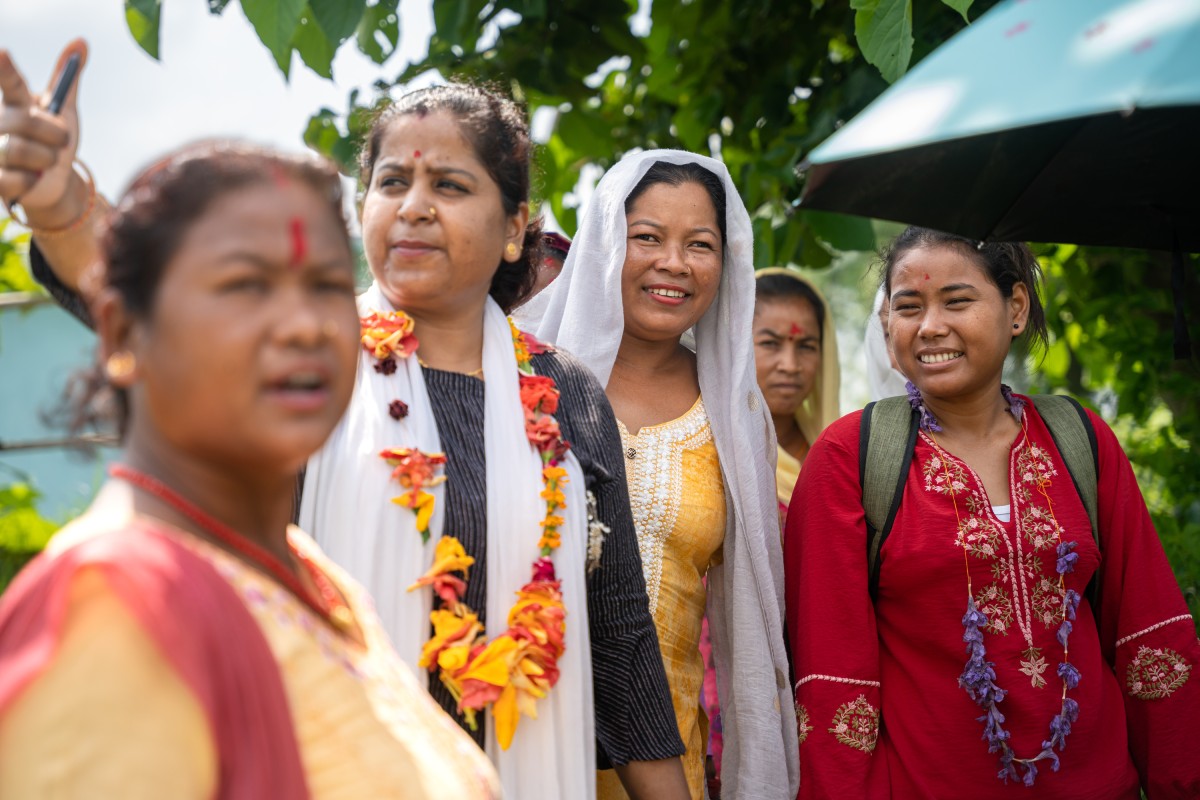Nirmala Chaudhary: “These reinforcements are better and last longer than other dykes."
Nirmala Chaudhary is fighting for the survival of her village in Nepal. Last year, a major flood knocked out the existing embankments alongside the river.

Since then, hand pumps, the major source of drinking water, flood frequently. And has erosion been gobbling up large tracts of land. Fertile land on which the community depends to survive. With help from the Water Justice Fund, Nirmala and the the Mehenatisheel women's group, want to get to work as soon as possible to build strong, new bio-embankments of bamboo and reeds.
Losing land with every flood
"From my window, I can see the river. Last year, I was so scared when I saw the water rising faster and faster. Large chunks of the existing bio-embankments were swept away. Those banks protected us from erosion and floods. Now we are losing land with every flood, and I can't sleep at night."
Since then, residents of Mehenatisheel have been forced to move their fields further and further away. "But the river keeps coming and takes away that land too," she says. Without their fields where they grow vegetables, life becomes even more difficult for Nirmala and her community. "It is our source of food for six months a year. And by selling vegetables, we earn some income." They also need the land for their houses. "We have nowhere else to go except for refugee camps," she says.
Getting involved as a community
Much rather, Nirmala and her women’s’ group sets to work creating new bio-embankments of bamboo, as they did nine years ago when they came to live here. "It was difficult, it took us and the whole community a whole month. We all worked for free and did nothing else. But when we finished, only a small piece of land eroded. And after that, when the bushes (Kaas, a kind of reed) we had planted had grown well, the land no longer eroded at all. These reinforcements are better and last longer than other dykes."

She doesn't want to return to last year when the whole area was waterlogged for an extended period. "It was very difficult; many people became seriously ill. There was no road anymore for the children to go to school." Still, Nirmala remains hopeful: "We have local bamboo, we have labour: if we get involved as a community, together with the elders who have knowledge of the river's flow, we can protect our village."
Do you want to learn more about Water Justice Fund?


